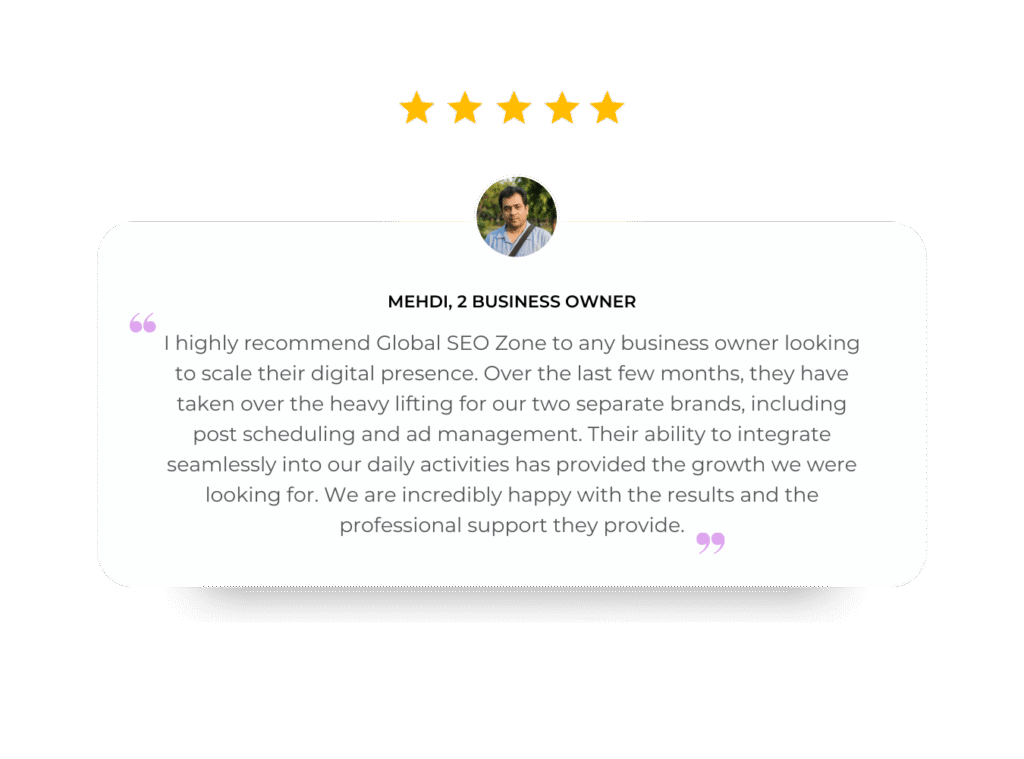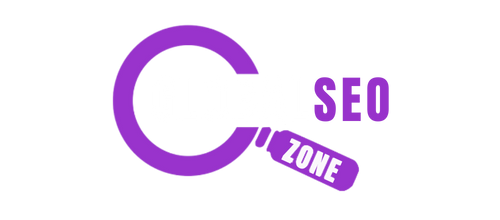- Fiverr Review ⭐ 4.8
- Upwork Review ⭐ 5
Digital marketing for Plumber
We help local service heroes—the plumbers and roofers—become the dominant names in their cities.
Leads Increased
Traffic Growth
Average ROI
Client Retention
OUR TESTIMONIAL
What Our Customer Say

Before Global SEO Zone, we were invisible on Google. Now, we are the #1 roofer in the Dallas Map Pack. Our phone literally doesn’t stop ringing during storm season. They are worth every penny!
Managing social media was a nightmare while trying to run a cleaning crew. Their VAs took over our Facebook and Instagram, and the quality of posts is incredible. Our customer retention has never been higher.
We spent thousands on bad leads before finding Global SEO Zone. Their Google Ads strategy focused on ’emergency plumbing’ keywords that actually convert. We saw a positive ROI within the first 14 days.
The team at Global SEO Zone is transparent and data-driven. I love the monthly reports that show exactly how many calls came from our SEO. No fluff, just results. Ranked #1 for three of our biggest keywords!
Digital marketing for Plumber
We offer a comprehensive suite of internet marketing tools to make your plumbing business the top choice in your city.
Local SEO & Website SEO
Most customers search for "plumber near me". We make sure your name is the first one they see. We optimize your Google Business Profile and website so you show up in the "Map Pack."
Google Ads (PPC)
Want leads today? Google Ads puts your business at the very top of search results instantly. We manage your budget to ensure you get the most calls for the lowest cost.
Website Design
We build fast, mobile-friendly websites that turn visitors into high-paying customers and make your plumbing business look like a million-dollar brand.
Social Media Marketing
We handle your social media presence to build trust with your local community. Show off your latest projects and keep your brand top-of-mind.
Content Marketing
We create high-quality blogs and articles that show off your plumbing expertise, build trust with customers, and help your website rank higher on Google.
Digital Marketing Strategy
We don’t guess. We create a custom roadmap for your business to help you scale from a local shop to a million-dollar premium service.

WHY choose US
Why is Global SEO Zone Different?
Industry Focus: We specialize exclusively in the plumbing trade, using our deep industry knowledge to target the exact services and emergency repairs your customers need.
Result-Oriented: We ignore “likes” and focus only on the metrics that matter most to your bottom line: more phone calls and booked appointments.
Global Reach, Local Touch: We apply world-class digital strategies to your specific neighborhood, whether you are located in the USA, Canada, or Australia.


Ready to Dominate Your Local Market?
Don’t let another lead go to your competitor. Let our local SEO agency put your business on the map.

Scale Your Plumbing Business to a Million-Dollar Brand with Digital marketing
At Global SEO Zone, we don’t just help you survive; we help you dominate. Using proven digital marketing for plumbers, we transform local shops into premium, high-revenue powerhouses.
- Become a Premium Brand
- Automated Lead Generation
- Top of Google Maps
- Attract the Best Workers

FAQS About Digital marketing for Plumber
What are your curiosities?
Here are the most common questions our clients ask about our Local SEO Agency and how we help you dominate your market.

You will typically see steady growth within 3 to 6 months. SEO is a long-term strategy that builds a permanent lead source. If you need jobs right away, we can pair SEO with Google Ads to get your phone ringing today.
We work with businesses ready to scale to million-dollar levels. Our plans are flexible and designed to grow alongside your revenue, ensuring your marketing budget always delivers a high return on investment.
Yes! We are experts in the USA, Canada, and Australian markets. We understand the local search habits and seasonal plumbing needs specific to each region, ensuring your ads reach the right homeowners.
It is a targeted strategy using SEO and Ads to find people with urgent plumbing needs. Instead of general ads, we focus on "high-intent" keywords like "emergency drain cleaning" to find customers ready to pay now.
Yes. We provide systems to help you collect 5-star Google reviews from happy customers. A great reputation is the fastest way to build a premium brand and beat your local competition.
We provide simple monthly reports that show you the only numbers that matter: new phone calls and booked jobs. You will always know exactly how much profit our marketing is generating for your business.













